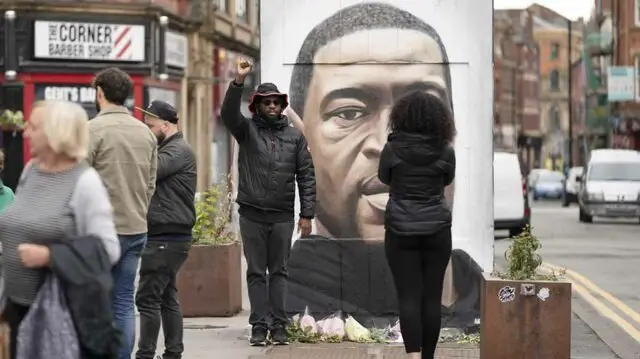Donald Trump’s speech is not what is really executing minorities or differentiated groups in the United States, but rather, it is his actions or the lack of execution that gives rise to a certain degree of permission for a social purge. For example, the lack of a more assertive condemnation by this president of the “Unite the Right” rallies during the attacks on the counter-protesters in Charlottesville; and on the other hand, his heavy hand with anti-racist protests, especially against the Antifa (anti-fascist) movement, which has recently been announced to be included in the government’s list of terrorist organizations, all this as a result of the civil and attacks against police officers. The above, in the violent context after the murder of African American George Floyd at the hands of officer Derek Chauvin, an incident that occurred in May 2020.
In short, Trump’s position generally raises an ambiguous, biased or unbalanced image with respect to the position of the United States federal government in the face of uncontrolled civil demonstrations.
As was seen several groups have been immersed in riots and repression has been channeled in a different way, clearly, depending on the interests in favor of the presidential image, the least affected being those radical groups with racist and nationalist pretensions such as: Unite the Right, Alt-right or Ku Klux Klan.

In fact, Trump accuses the Anti-Fra movement of being terrorists, but does not refer to the groups who favored his candidacy with the same label, that is, the Ku Klux Klan (and its former leader David Duke) or the alternative right (in English, Alt-right). In short, his words are a communicative reflection of his concrete steps or of his discursive ambiguity so as not to lose supporters.
However, we are not in charge of an openly racist, xenophobic, misogynistic, homophobic leader or government or whatever, and that is where their best political strategy lies, specifically, in everything related to the supposed “misunderstanding” of the figure of Trump, an argument that the defenders of the president alleged in response to the protesters or opponents.
Echoing what has been explained, fascism is a totalitarian ideology, openly racist from its legal system, among other historical differences. Although the federal government has strong repressive features worthy of a coercive apparatus belonging to a world power like the United States. At most, Trump could be considered a proto-fascist, someone who has achieved a shared aspect with traditional fascism when he speaks directly to people who are angry and they see a quota of “truth” in that speech. This is regardless of the ambiguity of the presidential position since his words are accompanied by concrete and precise actions, being part of what his defenders asked him in exchange for coming to power.

Indeed, people are needed who, think for themselves and see the discomfort of opponents of the government as reasonable or credible, and who can move the undecided away from thinking on the side of the status quo or the U.S. establishment. We all need to step outside our comfort zone and think beyond what will be said, hence a proposal, contrary to Trump’s ambiguity.
Don’t be afraid of being labeled for saying that a megalomaniacal president is not necessarily a fascist. In this case, let us call things by their proper name in order to better understand the problem, that is, authoritarian repression against the civilian population. It should be said that this alternative way of thinking is not going to cause a drastic or permanent change in politics, but it would potentially help with improving the understanding (or sensitivity) of many people in accordance with the current situation; otherwise, this would become a necessary advance during these times of health and social crisis on a planetary scale.
Finally, political monsters are not embodied in words; they are embodied in people and reflected in their actions.
We are not responsible for the opinions expressed by the author in this article.
(Note: The original article was published by Mexico’s digital newspaper: UNAM Global. You can see the original version in Spanish at the following link: https://unamglobal.unam.mx/?p=87595)
By: José David Ramírez Roldán

